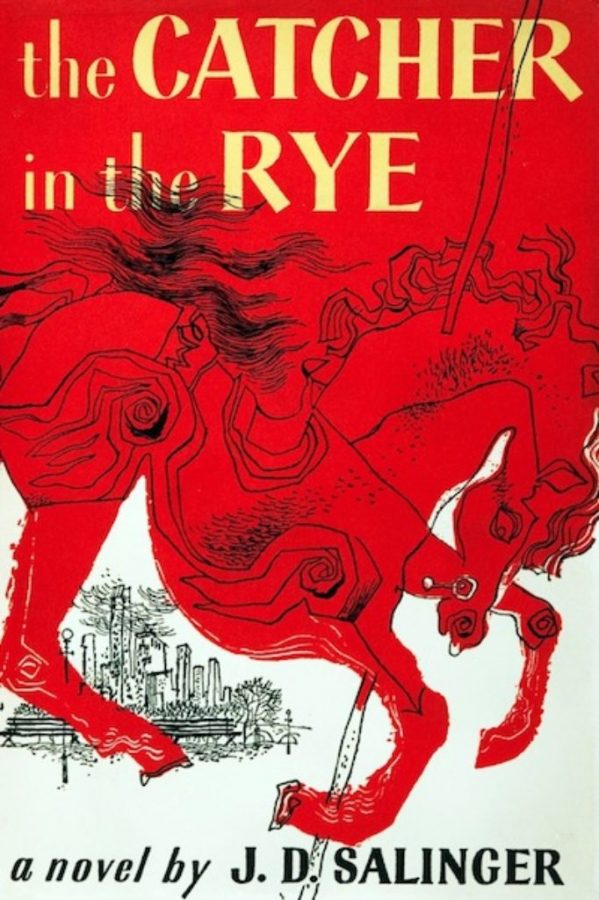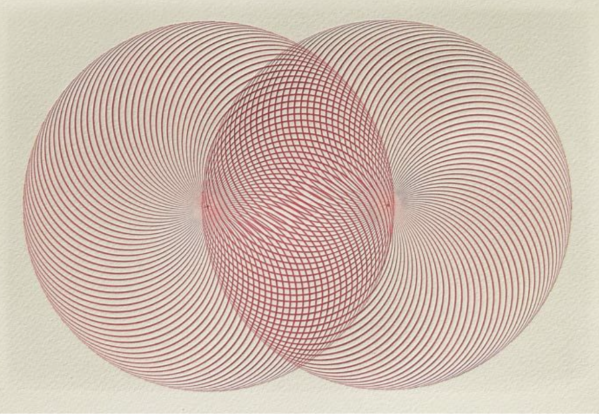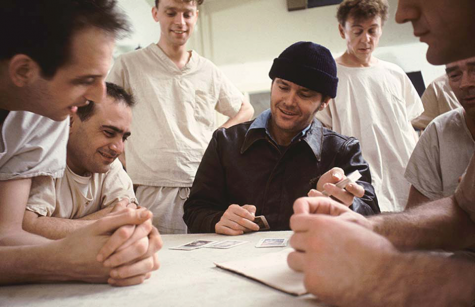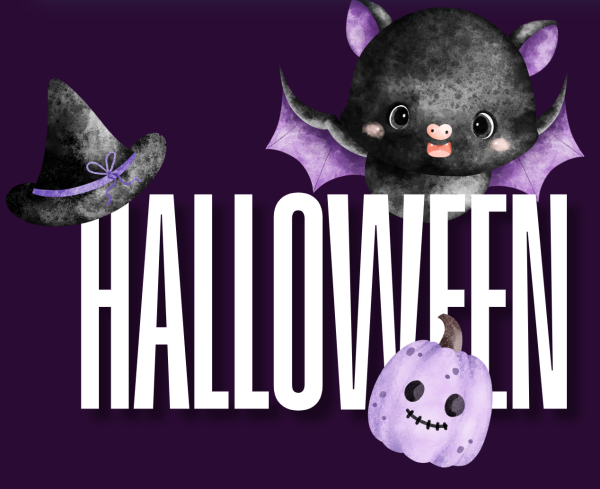Salinger Holds a Mirror to Readers in His Famous “Catcher in the Rye”
Holden Caulfield: Y’wake!
If writing plainly is a crime, J.D. Salinger is a criminal. In his 1951 novel “The Catcher in the Rye,” Salinger created, perhaps for the first time, a collective biography. The reader does not so much sympathize with Holden Caulfield as much as they become him. Salinger creates the feeling not of understanding but of being understood. Holden embodies the conscious self: unfiltered. After being kicked out of school, Holden prepares to leave his dormitory, saying:
“I put my red hunting hat on, and turned the peak around to the back, the way I liked it, and then I yelled at the top of my goddam voice, ‘Sleep tight, ya morons!’ I’ll bet I woke up every bastard on the whole floor. Then I got the hell out. Some stupid guy had thrown peanut shells all over the stairs, and I damn near broke my crazy neck.”
Salinger wrote not as if you were connected, but as if you were a part of wielding the pen, all without the lens of formality or politeness. It is a dissolution of the conventions of dialogue, the honest, rugged speech of an individual claiming his identity. Holden’s “the way I liked it” is the way we like it. Perhaps this is the secret ingredient for a collective biography — behind every “I” is a hidden “we.” The peanut shells are in the dormitory staircase. Why? It could’ve been split open ketchup packets, crusted vomit or a plastic spoon. It rings the same tune of random, “why the hell is this here?” dormitory treasures. The risk of breaking one’s neck is no risk at all, but a peeved exaggeration.
Strolling the streets of New York City, you are not so much ignored, but nonexistent. To be ignored, one must exist. Holden is New York City personified, with a touch of awareness. Flip randomly into the novel. Gaze at a random paragraph:
“At the end of the first act, we went out with all the other jerks for a cigarette. What a deal that was. You never saw so many phonies in all your life, everybody smoking their ears off and talking about the play so that everybody could hear and know how sharp they were.”
Cynicism with a dash of reality. Or is it the other way about? Despite cigarettes being in the norm in the 1950s, I do not wish to leave the impression that Holden embodies a cliché. The “jerks” after the first act, we are supposed to assume, are middle-aged working-class people. On the contrary, Holden is 16 years old, gray-haired and attempting to puff away the stress. In the scene depicted above, Salinger expects or rather requires, an adult reader. There are no death beams, bombs reigning overhead, constant reliance on imagery, or “knock-knock” type of humor. Take Holden happening upon a triad of ladies in a club:
“‘Where you girls from?’ I asked her.
‘What?’ she said.
‘Where you girls from? Don’t answer if you don’t feel like it. I don’t want you to strain yourself.’
‘Seattle, Washington,’ she said. She was doing me a big favor to tell me.
‘You’re a very good conversationalist,’ I told her. ‘You know that?’
‘What?’
I let it drop.”
There is no clear punch line, but that is part of Salinger’s humor. It falls under the beaten phrase, “you had to be there.” Salinger’s mixture of the profane with the innocent — a cocktail of vulgarity, child-like wonder and short temperedness — made “The Catcher in the Rye” the most censored book in high schools from 1961 to 1982. Holden’s run-in with a prostitute and her pimp, his constant drinking (he often fools unsuspecting bartenders with his height and gray hair) and his substitution of “goddam” for “um” to fill in lapses of speech still cause controversy.
The cry for censorship ignores the value of archetypal themes: the death of a brother, the sweet little sister, the neurotic parents. Only those unaccustomed to thinking would want to hide this work. Perhaps it is equally useful to explore the absent themes. Sex is never explicit; there is no cross donned around the neck or reference to the supernatural. Salinger doesn’t bombard you with formal prose; for instance, you will not encounter Holden saying, “I tried to ease the boy from slumber, but he wouldn’t budge.” You will, however, hear Holden demanding, “Y’wake!”
Holden’s frequent declaration, “That killed me,” shoulders everyday suffering. Even here, I am too narrow with Holden’s elastic, “That killed me.” The cringe joke, the awkward barista, the uneasiness of holding the door open for a chap ten-paces away: it kills us. Holden is never looked at twice, and only once by accident. He wants to know where the ducks go when the river freezes. Squint your eyes and cock your head, who do you see? Yourself.















































































































































































































